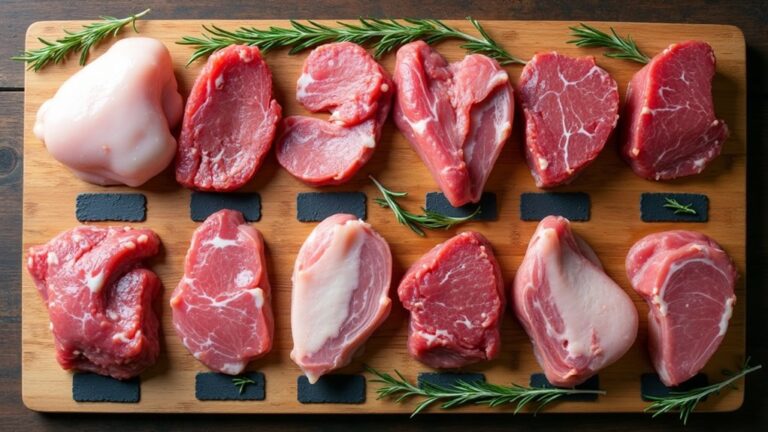If you have gallbladder problems, avoiding certain foods can prevent painful attacks. This article lists foods that trigger gallbladder attacks and healthier alternatives to keep your digestive system happy.
Key Takeaways
- High-fat foods, processed and sugary items, and specific vegetables can trigger gallbladder attacks and should be avoided for better digestive health.
- Healthier alternatives include lean proteins, whole grains, and healthy fats, which can support gallbladder function and reduce symptoms.
- Increasing fiber intake is essential for preventing gallstones and maintaining gallbladder health; aim for at least 28 grams of fiber daily.
What is Gallbladder Function
The gallbladder is a small, pear-shaped organ nestled under the liver, playing a crucial role in our digestive system. Its primary function is to store and concentrate bile, a digestive fluid produced by the liver that emulsifies and absorbs fats. When fatty foods are consumed, the gallbladder contracts and releases bile into the small intestine to break down fats into easily absorbed molecules.
Bile is not just a fat emulsifier; it also helps eliminate waste products from the liver, adding to its importance in maintaining overall digestive health and supporting bile flow. Without a properly functioning gallbladder, one’s ability to digest fats efficiently can be significantly impaired, leading to a range of digestive issues.
Gallbladder problems, such as cholesterol gallstones, can occur when bile contains too much cholesterol or bilirubin or when the gallbladder doesn’t empty properly. This can lead to gallstone formation, causing severe pain and other complications. Recognizing the gallbladder’s function helps us understand how diet impacts its health and how to make informed choices to prevent gallbladder disease.
For those who have had their gallbladder removed, the liver still produces bile, but it drips continuously into the digestive system, which can make fat digestion less efficient. The liver continues to release bile, and adapting one’s diet accordingly helps maintain a healthy digestive system and prevent discomfort.
Common Triggers for Gallbladder Attacks
Gallbladder attacks, characterized by severe pain in the upper abdomen, can be triggered by various foods and dietary habits. Knowing these triggers aids in managing symptoms and preventing future attacks.
High-fat foods are notorious for triggering gallbladder pain and symptoms. Fried foods, including fried meats, and high-fat dairy products like ice cream and cottage cheese, are particularly harmful and should be avoided to maintain gallbladder health. Processed and sugary foods, which can be hard to digest, also exacerbate gallbladder issues and should be limited in a gallbladder diet.
Moreover, egg yolks and red meat have been found to increase the risk of gallstone formation and should be consumed with caution. Identifying and avoiding these common triggers can significantly improve gallbladder health and reduce the risk of painful complications.
High-Fat Foods
High-fat foods can be particularly detrimental to individuals with gallbladder issues. These foods can increase the chances of gallstone formation and lead to painful complications. Here are some key high-fat foods to avoid:
- High-fat meats: Bacon, sausage, and other fatty meats can exacerbate gallbladder symptoms.
- Cream-based foods: Soups and sauces with high cream content can trigger issues in those with gallbladder problems. Red meat is high in saturated fat. This can lead to the formation of concentrated bile and gallstones.
- Trans fats: Unhealthy trans fats found in fried foods can trigger gallbladder-related issues.
Regular consumption of eating high fat foods can cause gallbladder inflammation and gallstone formation, complicating gallbladder health. Limiting these foods, including those high in saturated fats, is crucial to maintain a healthy gallbladder.
Instead of high-fat meats and dairy products, opt for lean proteins like skinless chicken, turkey, or plant-based options such as beans and lentils. Incorporating healthy fats, such as those from avocado oil, avocados, and olive oil, can help maintain a balanced diet without overloading the gallbladder, supporting a healthy diet.
These small dietary changes can make a significant difference in managing gallbladder symptoms and improving overall digestive health, keeping your gallbladder healthy.
Processed and Sugary Foods
Processed and sugary foods are other major culprits when it comes to gallbladder issues. These foods can be hard to digest and often contribute to the formation of gallstones. Here are some key points to consider:
- Refined white flour: Linked to gallbladder flare-ups due to its lack of nutrients.
- Baked goods: Often contain refined ingredients that can aggravate gallbladder symptoms.
- Sugary drinks: Soda and other sugary beverages are associated with an increased risk of gallbladder complications.
High sugar and unhealthy fats intake negatively affect gallbladder health, making it crucial to limit these foods in your diet, including refined sugars. Opt for whole grain alternatives such as brown rice, quinoa, and whole wheat bread, which are much better for gallbladder health.
Additionally, replacing sugary snacks with fruits like berries, apples, and pears can provide the necessary nutrients without the negative impact on your gallbladder. These healthier choices not only support gallbladder function but also contribute to overall well-being.
Spicy and Irritating Foods
Spicy foods and irritating foods can exacerbate existing digestive issues and potentially trigger gallbladder attacks. While they might not directly cause gallbladder pain, they can significantly impact gallbladder health by worsening digestive distress. Foods that irritate digestion can lead to discomfort and inflammation in the gallbladder.
Here are some examples:
- Spicy dishes: Can lead to digestive distress and trigger gallbladder attacks.
- Irritating foods: Certain foods can exacerbate gallbladder discomfort and inflammation.
It is essential to consider how these foods impact your gallbladder health. Reducing the intake of spicy and irritating foods can help manage gallbladder symptoms and prevent further complications.
Alcohol and Caffeinated Beverages
Alcohol and caffeinated beverages can have a significant impact on gallbladder health. Too much alcohol consumption can lead to dehydration and negatively affect liver health, which in turn impacts the gallbladder. Long-term heavy drinking is associated with various health risks, including an increased likelihood of specific cancers.
Alcohol affects gallbladder function by impacting bile production and increasing inflammation. Excess caffeine may overstimulate the gallbladder. This can increase bile secretion and result in discomfort. Reducing caffeine and very sweet foods may help alleviate digestive discomfort after surgery.
Healthier alternative drinks for gallbladder health include herbal teas, infused water, and probiotic-rich kombucha. These alternatives can help maintain hydration and support overall digestive health.
Vegetables That Cause Bloating
Certain vegetables, while generally healthy, can cause bloating and exacerbate gallbladder issues. Vegetables like cabbage and cauliflower should be limited due to their potential to cause bloating in gallbladder patients.
Here are some vegetables to watch out for:
- Cabbage and cauliflower: Can cause bloating and digestive issues.
- Broccoli and brussels sprouts: Should be limited as they can also trigger bloating.
Consuming these gallbladder vegetables can exacerbate gallbladder issues due to bloating. Monitoring your body’s response to these vegetables and adjusting your diet accordingly is crucial.
Healthier Alternatives for a Gallbladder-Friendly Diet
Choosing healthier alternatives is vital for maintaining gallbladder health. Whole grain pasta, bread, oats, rice, and cereals are better options than white flour products for supporting gallbladder function. Lean proteins like skinless chicken, turkey, or plant-based options, such as beans and lentils, are better alternatives to high-fat meats. Incorporating monounsaturated fats, such as those found in avocados and olive oil, can help lower bad cholesterol and may reduce gallstone risk.
Home-cooked meals with fresh ingredients and healthy fats are healthier alternatives to fast food. Consuming foods rich in vitamin C, like strawberries and bell peppers, may provide protective benefits for gallbladder health.
Including nutrient-dense whole foods like vegetables, fruits, beans, and whole grains can be beneficial for gallbladder issues. Small dietary changes can significantly improve gallbladder symptoms and overall digestive health.
The Role of Fiber in Gallbladder Health
Fiber is crucial for gallbladder health and preventing gallstones. Higher fiber intake is linked to a decreased risk of gallstone disease, while low fiber consumption is associated with a higher prevalence.
Both soluble and insoluble fibers have been found to lower gallstone disease risk in various studies. Increasing soluble fiber intake, like oats and barley, can help regulate bowel movements and support bile production.
Aiming for a daily fiber intake of at least 28 grams can support digestive health and potentially reduce gallstone risk. A diet rich in fiber may shorten intestinal transit time, reducing bile acid production.
Tips for a Balanced Diet Post-Gallbladder Surgery
Post-gallbladder surgery dietary changes are crucial for improving digestion and preventing complications. Recommended foods include fresh vegetables, fruits, whole grains, and lean meats like fish rich in omega-3 fatty acids.
Here are some key tips for maintaining a balanced diet post-surgery during the first few weeks:
- Avoid high-fat, fried, and greasy foods: To minimize digestive discomfort.
- Consume several small meals throughout the day: Aids digestion and prevents overload.
- Limit spicy and processed foods: As they can exacerbate post-surgery symptoms.
Incorporating higher fiber foods into the diet can support digestive health and improve digestion and regularity. Limiting beverages such as coffee and tea may help reduce digestive discomfort and support recovery.





